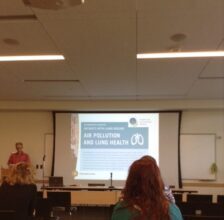Health insurance premium credits in the new law are linked not directly to income, but to the poverty line, resulting in a particularly steep marriage penalty for low-income Americans. With $10,890 as the poverty line for one person and an additional $3,820 for a spouse, marriage means less government help with health insurance.
Health insurance premium credits in the new law are linked not directly to income, but to the poverty line, resulting in a particularly steep marriage penalty for low-income Americans. With $10,890 as the poverty line for one person and an additional $3,820 for a spouse, marriage means less government help with health insurance.
Two singles would each be able to earn $43,000 and still receive help to purchase health insurance, but if they got married and combined their earnings to $86,000, they would be far above the limit. As a married couple, the most they could earn and still get government help with health insurance premiums would be $58,000, a difference of almost $30,000, or 32 percent. This is a substantial disincentive to getting married, or to working while married.
Testimony of Diana Furchtgott-Roth.







